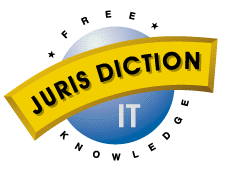 Introduction to Licensing
Introduction to Licensing
copyright 1997 Donald M. Cameron , Aird & Berlis
Contents
- What is Licensing?
- A Schoolyard Example
- It is a Contract
- Intellectual Property - The Underlying Currency
- Voluntary/Compulsory Licences
What is Licensing?
Quite simply, licensing occurs when someone who owns something gives someone else permission to use it.
A schoolyard example
A simple example is at the schoolyard, where children meet at the playground before school. One brings a bat. Another brings a ball. Others bring baseball gloves. Each child owns his or her individual bat, ball or mitt. Independently, these "assets" are not a lot of fun. The fun (and synergy) occurs when those assets are shared: the owners grant permission to others to use the bat and ball and gloves.
The permission is granted for a limited purpose and a limited time. The bat can be used only for hitting the ball and cannot be used for hitting the backstop or other players. The mitts are to be used only for catching the balls and not for bases. All bats, balls and gloves must be returned to their rightful owner when the schoolyard bell rings.
The schoolyard example of licensing is a complicated cross-licensing scenario. In
return for a boy granting a licence to a girl to use his bat, he receives a licence from
the girl to use her baseball.
It is a contract
A licence is also a contract. A contract requires at least two parties (legal entities who have the power and authority to enter into a contract) and "consideration" flowing between the parties. When someone purchases a car, the consideration brought to the contract by the owner of the car is the ownership of the vehicle. The consideration brought by the purchaser is the purchase money. In a licence agreement, the Licensor grants permission to use the licensed property; the Licensee usually contributes money in the form of royalties to the licensor.
Intellectual Property - The Underlying Currency
A licence usually arises where the owner ("the Licensor") has a property or proprietary interest in some form of property. The right to exclude others (found in intellectual property rights) can be used to grant licences to others to exploit the works. By licensing, the copyright owner can earn royalties from the commercialization of the work without assigning the ownership in it.
Voluntary/Compulsory Licences
Voluntary licences are those entered into willingly by the Licensor and Licensee. Compulsory Licences are licences that are imposed on the copyright owner either as a result of the owner's conduct or by the provisions of the Copyright Act.
Return to:
Cameron's IT Law: Home Page; Index
Cameron's Canadian Patent & Trade Secrets Law: Home Page; Index